‘Butterflies and Hurricanes’ by Muse was on heavy rotation on MTV at a time, 15 years ago, when my infant son could be magically coaxed away from tears and back to sleep by pop videos. The only lasting effect of this proved to be my developing a deep and lasting aversion to Muse, because I saw that video what felt like 160 times a day for three months.
Having watched them at the O2, I wish to apologise. Muse, my disdain was misplaced. You really are terrific. I’m still not sure I would want to listen to an unadulterated diet of their albums — a Christmas dinner of prog, glam and metal, seasoned with quasi-classical interludes and attempts to sound like Prince — but I’d run, not walk, to see them again from a good seat in an arena.
A large chunk of that is down to the production, which is roughly what an eight-year-old would come up with if they were allowed to have a rock show for a birthday party. ‘Mum, can I have dancers with light sabres?’ Yes, dear. ‘And a giant inflatable killer robot with a champing jaw, that I get to fight with my guitar?’ Yes, dear. ‘And people in Terminator suits?’ Yes, dear. ‘And all of us going up and down through the stage on platforms all the time?’ Yes, dear. ‘And people hanging from the lights?’ Yes, dear.
‘And an arcade game on stage?’ Yes, dear. ‘And flashing lights all over the guitars?’ Yes dear. ‘And I want to wear glasses with flashing LED screens.’ Well, I’m not sure that’ll be good for your eyes. ‘BUT THAT’S WHAT I WANT!’ Yes, then, dear.
It was a feat of the imagination. And the music wasn’t bad either. Muse’s frontman, Matt Bellamy, would probably have told Tchaikovsky that the 1812 Overture could have done with being more florid, but spectacle on this scale doesn’t need musical restraint.
The sound engineer deserves praise, too: I’m not sure I’ve ever heard a band sound this good in an arena. There was not just clarity, but subtlety: somehow, for ‘Pressure’ and ‘Uprising’, whoever was behind the mixing desk managed to achieve the hyper-compressed sound of glam rock, where everything is flat and there is no echo. Which, given that everything echoes in an arena, was a mind-boggling achievement.
Muse have so many fans — these two nights at the 20,000-capacity O2 followed a sellout show at the London Stadium in the summer — because they are incredible fun. But they are also a band for these times. While Bellamy doesn’t write about the here and now, their catalogue is replete with songs about dystopias in which the inevitable They are busy stomping all over the heroic Us. I have no idea what Bellamy’s specific views are — other than that he considers himself a left-leaning libertarian — but it’s very easy to see Muse as the unwitting arena-rock arm of the Ickean-Faragist movement, in which the state is always out to get you. And when thousands of people sang: ‘We will be victorious!’ during ‘Uprising’, arms upraised, one was reminded that Muse had to devote a significant portion of 2012 to refusing American politicians permission to use it at rallies.
The American hip-hop star Tyler, the Creator represents another equally valid paradigm of the times: the gooning kid turned woke millennial. He first attracted attention as part of the collective Odd Future Wolf Gang Kill Them All, who were sufficiently nihilistic to become stars of one of those reliably tone-deaf Newsnight pop culture features, and his early solo records seemed to relish being unpleasant in the same way extreme metal bands do. ‘She’, which featured in the first of his three London shows, concluded with him yelling: ‘I just wanna drag your lifeless body to the forest and fornicate with it, but that’s because I’m in love with you.’
But whereas extreme metal bands singing about rape and murder get to tour the UK all the time, Tyler was banned in 2015: the then home secretary Theresa May ruled that his lyrics put him ‘within the scope of the list of unacceptable behaviour’ and forbade him from playing here for three to five years. Since then, though, Tyler has rather altered his ways. His last two albums, Flower Boy and Igor, have been all up in your grill about his feelings, and finally transformed him — like his former Odd Future colleague Frank Ocean — into a bona fide star. And now, for the first time since the ban, he has been allowed back into Britain.
The sensitivity was all relative: he was not being earnest with an acoustic guitar. Instead he was alone on stage in a mustard suit and a peroxide wig, jerking his body around a little like David Byrne in the video for Talking Heads’ ‘Once in a Lifetime’, while the PA boomed out the backing tracks.
Often Tyler did very little, just let the crowd roar the choruses back to him. To be honest, this new, sensitive Tyler isn’t getting all that deep into the human condition — ‘Riding around, you’re telling me something is bad/ And it’s making my heart break’, he offered on ‘Earfquake’. I’m not sure a career in therapy awaits — but the connection between him and his young, multiracial crowd was palpable. They adored him. They had feelings, too. Bless ’em.
Got something to add? Join the discussion and comment below.
Get 10 issues for just $10
Subscribe to The Spectator Australia today for the next 10 magazine issues, plus full online access, for just $10.
You might disagree with half of it, but you’ll enjoy reading all of it. Try your first month for free, then just $2 a week for the remainder of your first year.

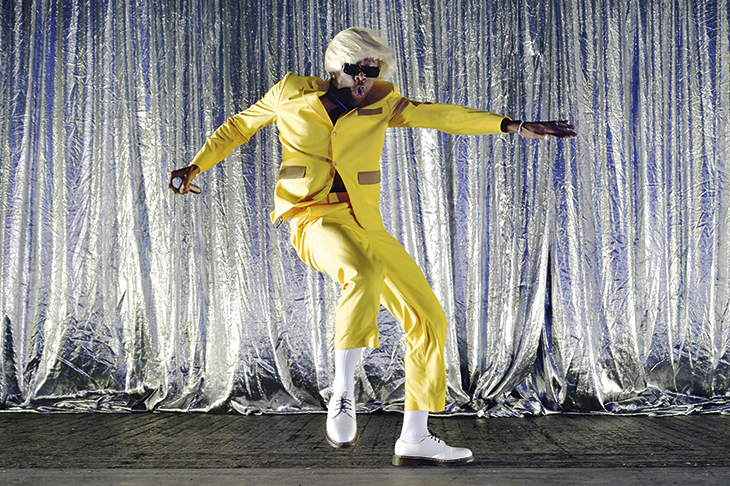
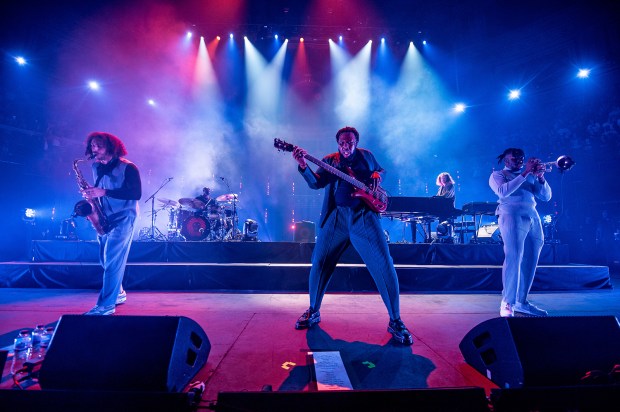

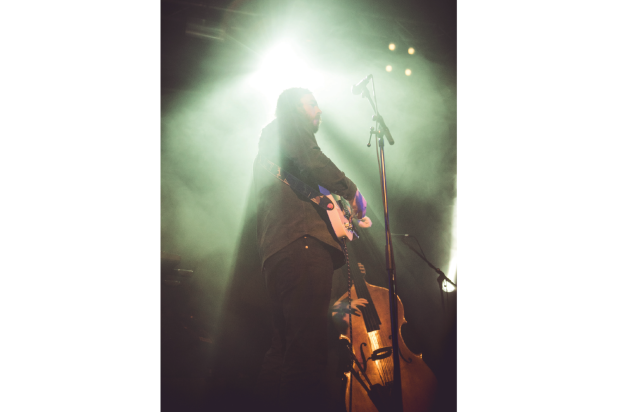
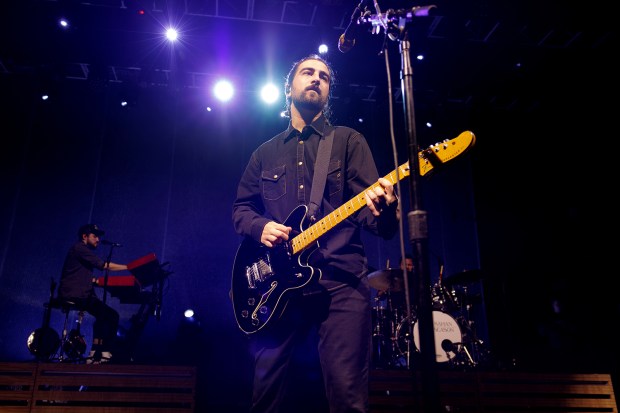
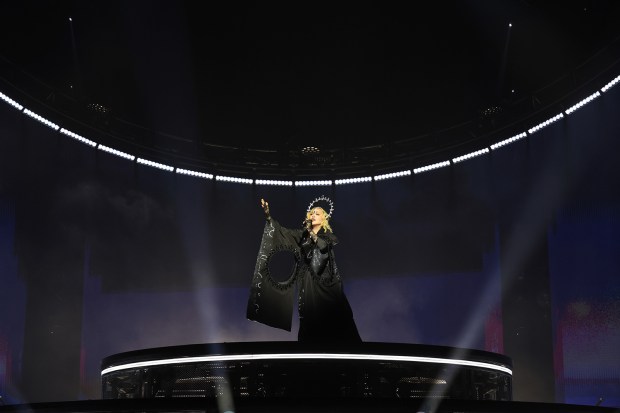
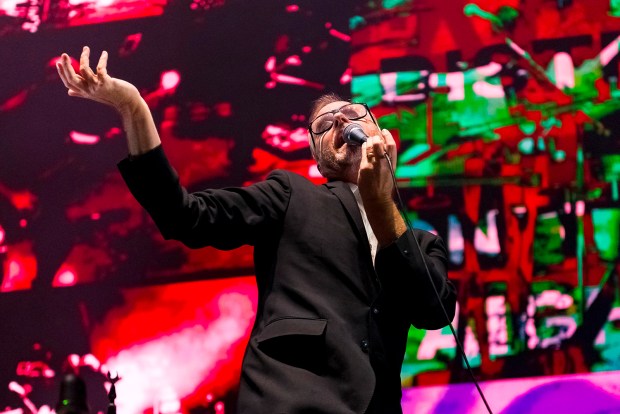






Comments
Don't miss out
Join the conversation with other Spectator Australia readers. Subscribe to leave a comment.
SUBSCRIBEAlready a subscriber? Log in